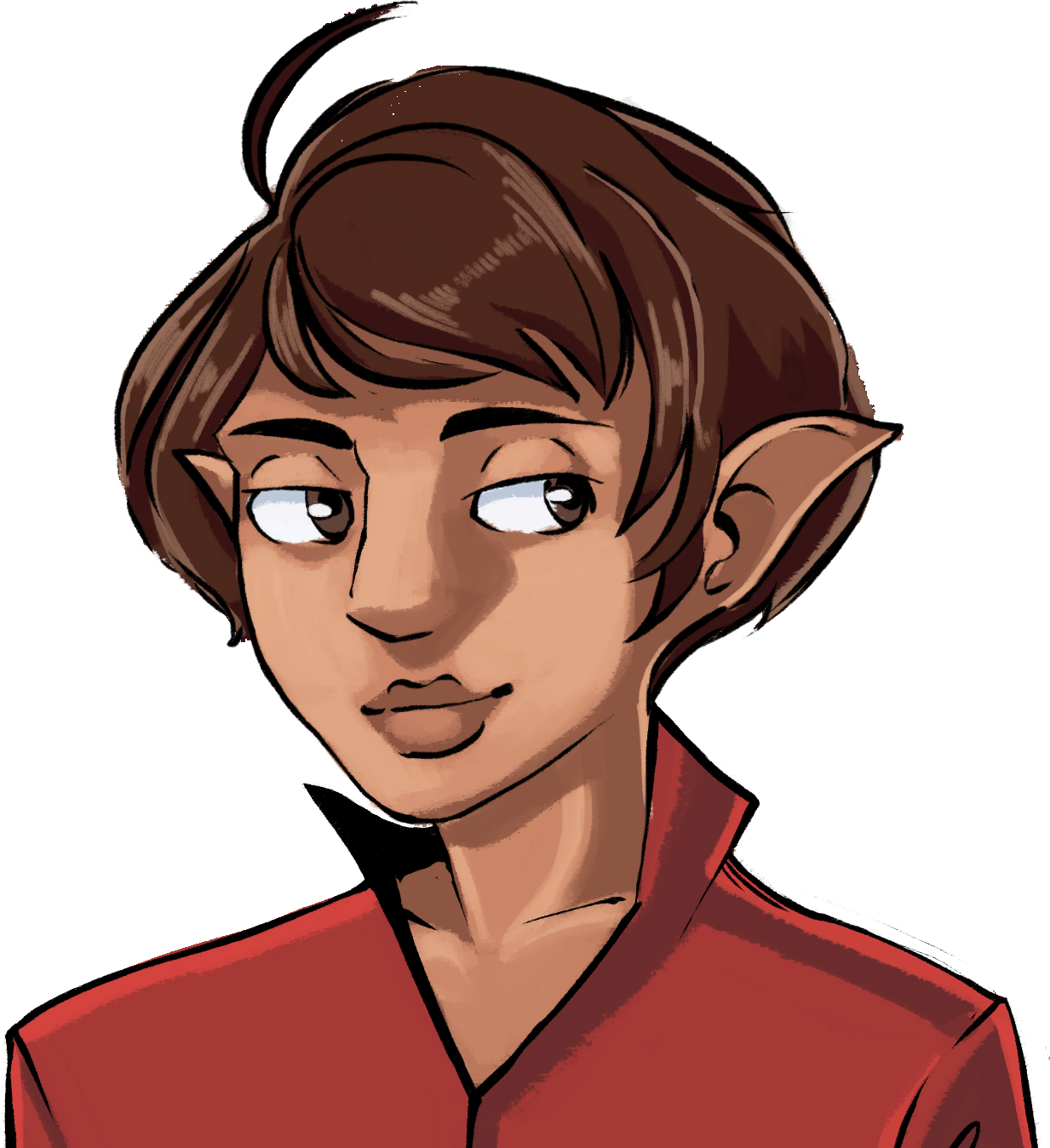Erika Tatsu sat at a cafe on the station’s Promenade – a massive chamber carved out by the Breen to train soldiers, converted by Starfleet and the Lagashi into a commercial district to help morale in the cold darkness of the asteroid – and sipped her drink. Iced tea mixed with the juice of a Cardassian humpberry, bitter and sweet and tart all at once. It was a taste that was apparently singular to her, but the barista operating the cafe had made it without comment. Mixing Cardassian and human flavors was, apparently, the least odd thing about her.
“Pardon, Captain.” The voice that spoke was melodic, and Tatsu’s Universal Translator identified the language not as English but as the Lagashi dialect of Mandarin. “May I join you?”
Tatsu looked up, met the speaker’s eyes. She was definitely Lagashi – the visible cybernetics behind the electric blue irises of her eyes spoke to that – and beautiful. Late 30s or early 40s, with a distinctive hook to her nose and fine civilian dress. She wore a shimmering azure coat over a white blouse and long, pleated, black skirt, all in fabrics Tatsu was unfamiliar with. Tatsu gestured to the seat across from her. “Please, sit.” She sipped her drink once more before continuing, giving the woman time to settle. “I have not had time to review the files of the station’s civilian complement, so you’ll have to forgive me not knowing who you are. I am Captain Erika Marie Tatsu.”
“I know you, Captain,” the woman said. “I am Keyere Hala Hualing, and while I am presently at rest, I am the Arbiter assigned to this station and its nearby space. The duty and honor of the law rests on my shoulders.” She held Tatsu’s eyes, her gaze intense, probing, the bright color of her eyes keeping Tatsu firmly aware of the power of that gaze.
“Arbiter.” The role of the Arbiters had, of course, been in Tatsu’s briefing packet, and Commander Enigma had once spoken to her at length about them. In Lagashi culture, they were among the most revered civilians – incorruptible, trusted with immense power, virtually impossible to intimidate. They were judges, notaries, and witnesses, their word truth under the law. In return for that power, they were held to the highest standards, expected to wield the law impartially and effectively. An Arbiter found to be corrupt or to abuse her power would see sanctions against herself and her family, would become an outcast among the Lagashi people.
This woman was the highest civilian authority on Roosevelt.
“I am pleased to meet you, Arbiter,” Tatsu said, folding her hands in greeting.
“And I you, Captain,” Keyere Hala replied. “Pleased, though also trepedatious. Commander Enigma, though of Earth, has spent the time to learn us as a people. She is all but part of one of our families, and has fought and bled alongside our soldiers. Her voice helps our children learn the shape of the galaxy around them, and her words carry the music of home. You, however, are an unknown.”
“I won’t pretend to be an expert on Lagashi law and culture,” Tatsu said. “Commander Enigma and I are friends, and I have listened when she has spoken of your people, but I don’t have her direct experience. I can, however, promise that when you speak, I will listen, and I will know that you speak with the force of the law behind you. I can only ask that you offer me understanding.”
The Lagashi woman smiled, then, a warm, winning expression that lit her whole face. “I will trust you, Captain Tatsu, until you violate that trust, and I will offer you the best counsel I can.”
Tatsu nodded, folding her hands on the table. “Thank you, Arbiter.”
Then her commbadge chirped. “Ops to Tatsu,” Kron’s voice said. “We need you here, Captain. We have a ship approaching… it’s Kzinti, and it’s badly damaged and not responding to hails.”
Tatsu rose to her feet. “On my way.” She looked to Keyere Hala. “I apologize for cutting this short.”
“It is all right,” the Lagashi woman replied. “I will see you again.”
Tatsu offered a parting gesture before making her way to the turbolift. “Ops.”

 Bravo Fleet
Bravo Fleet








